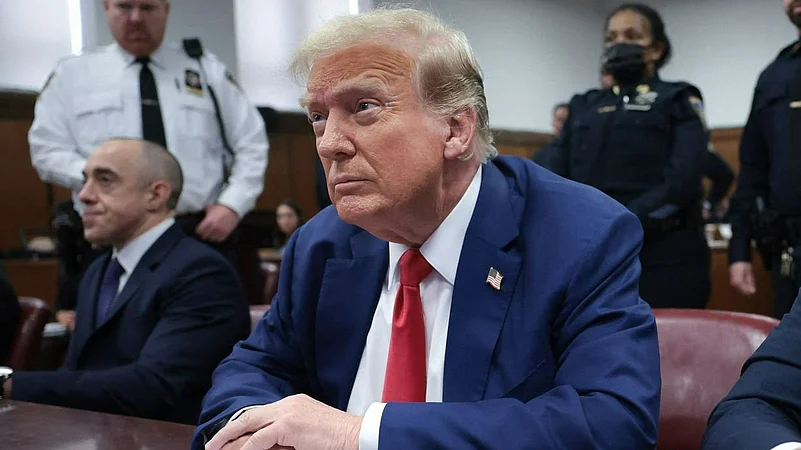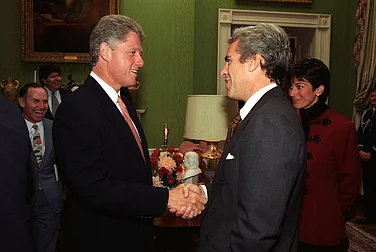Judge Juan M. Merchan on Friday agreed to delay Donald Trump's sentencing in the hush money case until November 26, three weeks after the presidential election.
Originally set for September 18, this postponement grants Trump a break as he campaigns for the presidency.
The judge is also considering a defense request to overturn the verdict on immunity grounds.
The new sentencing date ensures that voters will decide the election without knowing whether Trump faces jail time.
Judge Delays Donald Trump's Sentencing
Merchan explained in a four-page decision that he was postponing the sentencing “to avoid any appearance — however unwarranted — that the proceeding has been affected by or seeks to affect the approaching presidential election in which the Defendant is a candidate.”
“The Court is a fair, impartial, and apolitical institution,” he added, writing that his decision “should dispel any suggestion” otherwise.
Merchan further stated, "This is not a decision this Court makes lightly but it is the decision which in this Court’s view, best advances the interests of justice."
Trump's lawyers pushed for the delay on multiple fronts, petitioning the judge and asking a federal court to intervene. They argued that punishing the former president in the thick of his campaign to retake the White House would amount to election interference.
Trump's lawyers argued that delaying his sentencing until after the election would also allow him time to weigh next steps after Merchan rules on the defense's request to reverse his conviction and dismiss the case because of the US Supreme Court's July presidential immunity ruling.
In his order Friday, Merchan delayed a decision on that until November 12.
According to New York Times, Trump's campaign did not celebrate the delay but the party issued a statement calling it an "election interference witch hunt" and said, "there should be no sentencing" at all in what it called an “election interference witch hunt."
This further makes it unclear if the sentencing as per schedule would harm or boost Trump's campaign as he may have used it to establish claims of being unfairly targeted by the political system.
Trump challenged his guilty verdict by arguing that evidence used in his trial, which included actions and communications from his presidency, should be excluded based on the Supreme Court’s ruling that ex-presidents cannot be held criminally liable for official acts.
He claimed that testimony and evidence related to his alleged pressure campaign against Michael Cohen, as well as presidential communications and disclosures, breach this ruling.
Accoridng to Forbes, legal experts generally believe Trump’s conviction will likely stand, as many charges stem from before his presidency.
Timeline Of Donald Trump's Hush Money Trial
A federal judge on Tuesday denied Donald Trump’s request to move his case from Manhattan’s state court to a federal court. Trump’s legal team had hoped to then challenge the verdict on immunity grounds, but their appeal to the 2nd U.S. Circuit Court of Appeals to delay proceedings is still pending.
Trump, who faces multiple criminal trials after being indicted four times since March 2023, saw his legal schedule largely cleared in recent months. Notably, a federal case in Florida was dismissed in July, and delays in a Washington, D.C. case related to efforts to overturn the 2020 election have further stalled his trials. The only case to reach trial so far is the Manhattan hush money case, which ended in Trump's conviction for falsifying business records to conceal a $130,000 payment to Stormy Daniels before the 2016 election.
Following his conviction in May, Trump’s defense has sought to delay sentencing, arguing that the proximity of a Supreme Court ruling on presidential immunity to the sentencing date unfairly limits their preparation time.
The Supreme Court’s decision restricts the use of official actions as evidence in criminal cases, which Trump’s lawyers argue should affect the current case.
Despite these delays, Manhattan District Attorney Alvin Bragg’s office is prepared for sentencing, emphasizing that a jury convicted Trump of 34 felony counts. Trump's defense maintains that the case is a politically motivated “witch hunt” and is pushing for the case to be dismissed based on the immunity ruling.
Trump remains the first former president convicted of a crime, facing potential sentences ranging from probation to prison time. His case continues to be a significant focus in the political arena, with Democratic figures using his conviction in their campaign messaging.
Election Day is November 5, but many states allow voters to cast ballots early, with some set to start the process just a few days before or after the date Sept. 18.














.png?auto=format%2Ccompress&fit=max&format=webp&w=376&dpr=2.0)













